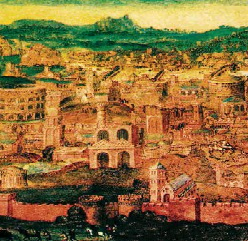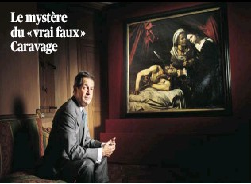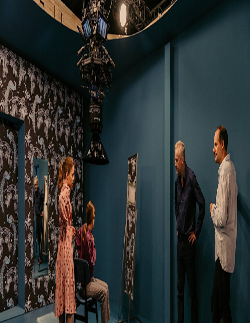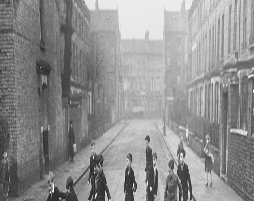January 2019 Culture and Society
Read the articles selected in January 2019
The steam has gone out of globalisation
Source: The Economist, 24 January

Protectionisms and geopolitical rivalry give new trade rules and a new shape to globalisation. A fluid system of regional trades and spheres of influence prevails over international investments, leading to financial turbolences that hit the emerging countries, but not the Western world.
Read more:
https://www.economist.com/leaders/2019/01/23/the-steam-has-gone-out-of-globalisation
André Bazin, tout pour le cinéma
By Éric Neuhoff
Source: Le Figaro, 19 January
Defined as the father of the Nouvelle Vague, the classic timbre of his critique remains distinguished from the movement of the “jeunes turcs”. He was who discovered and gave theoretical dignity to the Neorealism and forged the word sequence-shot. A new volume collects his complete work in 2700 articles.
Britney Spears, plus forte que l’intelligence artificielle?
By Paul Vacca
Source: Libération, 23 January
An Israeli historian deals with the issue of the relation between algorithms and artistic creation, in particular of musical works. But can one formula guess, beyond emotions, also the success of a jingle? In fact it is the success, and not the algorithm, which shows that the calculation was right.
Oubliez les barbares et la décadence,c’est le climat qui a fait chuter Rome
By Emmanuel Gehrig
Source: Le Temps, 19 January

Like the thrive, also the decadence of one civilisation is related to the ecological factor. That is what happened to the Rome’s Empire, hit after a thousand years of glory by the Little Ice Age of the Late Antiquity and its devastating biological consequences.
120m people expected at Indian festival
By Michael Safi Kakoli Bhattacharya prayagraj
Source: The Guardian, 15 January

The Kumbh Mela, the pilgrimage of mass taking place periodically in India, this year is going to host the largest human gathering ever occurred. Beside the electoral interests of political parties, the festival expresses a message of unity across the religion’s many castes and deities .
Quando el algoritmo es el que pincha
By Héctor LLanos
Source: El País, 17 January
The live coding is a new way of making and enjoy music, a mix of spontaneous artistic expression and informatic programmation. In the algoraves, a juvenile phenomenon expanding also in Europe, the dj improvises melodies representing them on a screen in their form as an algorithm .
Le mystère du “vrai faux” Caravage
By Éric Biétry-Rivierre
Source: Le Figaro, 11 January

The problem of the autenticity of a Caravaggio divides the international scholars. After Mina De Gregori, one of the most eminent expert of the sector, the enigma about the molteplicity of exemplars attributed to the genial artist is to be explained with the freedom of his painting, unmindful of replicating himself.
Ein Mozart für morgen
By Andreas Wenderoth
Source: Die Faz, 16 January

A new Mozart appears in the representation by Jean Schmidt Garre, who holds the Opera a genre needing of reforming. The action is directed not to the theater’s public, but is built in front of the camera in a 360° perspective, whereas the spectator isn’t any more passive, but sitting on the director’s chair.
Read more:
Beyond
By Nina Burleigh
Source: Newsweek International, 4 January
The American philosopher Martha Nussbaum has just been awarded for her commitment in the interpretation of the public discourse and the political rethoric after the language of emotions. Philosophy can be used to handle with uncertainty, since we can’t do without feeling fear or hope.
Rendez-vous à Karlsruhe, pour les 100 ans du Bahaus
By Philippe Viguié Desplaces
Source: Le Figaro, 9 January
Germany celebrates the centenary of Bauhaus, the school of art and design created in the fervor of the Republic of Weimar. In Karlruhe, the quarter Dammerstock and an exceptional exposition represent the heritage of an aesthetic project which has never been forgotten.
Das italienische Vorbild
By Bernard Schulz
Source: Der Tagesspiegel, 5 January
The Alte Pinakothek in Munich hosts until the 4th February a magnificent exposition of Florentine painters, from Giotto to Leonardo da Vinci, which includes works of design, as the foundament indispensable and anchored to reality of an art, like the fifteenth-century Florentine, voted to telling not ordinary stories.
Why children’s live have changed radically in just a few decades
Fonte: The Economist, 3 Gennaio

This report examines the new generation of children and their families, considering in particular the effects on their condition of the new technologies, used mainly inside the domestic habitat e in remote connection with their peers.
Read more:
Info
- Pubblicato il : 04/02/2019 Modificato il : 04/04/2019

